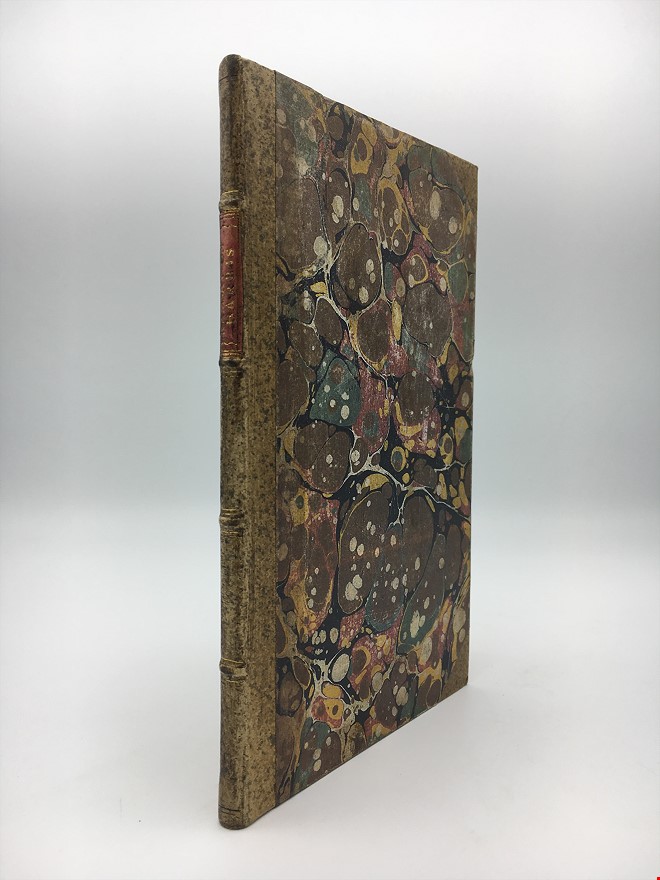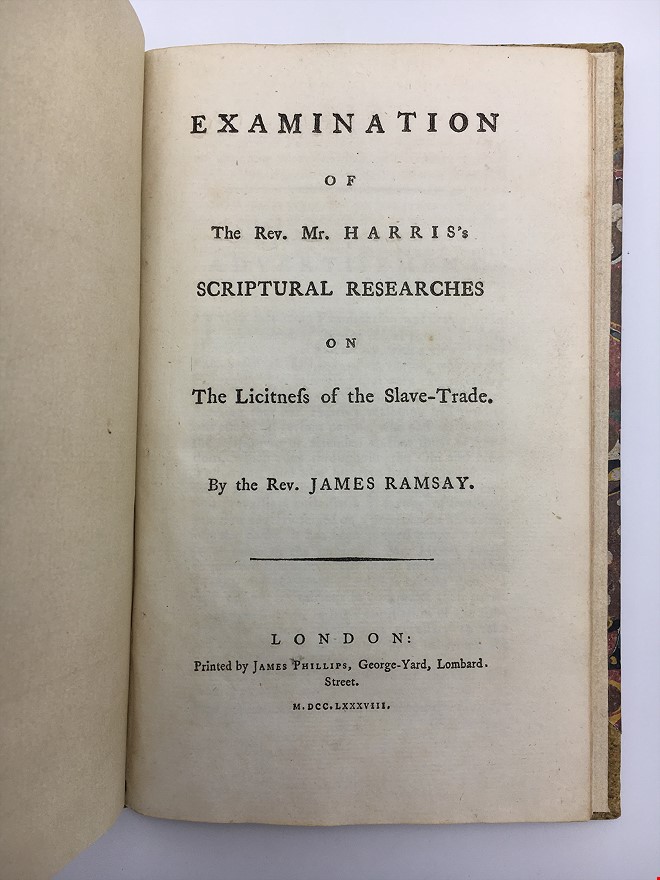Examination of The Rev. Mr. Harris's Scriptural Researches on the Licitness of the Slave-Trade.
RAMSAY James (1788.)
£750.00
Please contact us in advance if you would like to view this book at our Curzon Street shop.
Only edition. 8vo., 29, [3] pp. With the final advertisement leaf. An excellent copy bound in modern calf and marbled boards, antique style. London: James Phillips,
An excellent copy of Ramsay's reply to Raymund Harris's Scriptural Researches which defended the slave trade on scriptural grounds.
In Ramsay's "Advertisement" to the reader, he acknowledges the effect that Harris's work has had on the public: "But on coming up to town, and understanding that Mr. Harris's reasoning had produced effects on certain people ... it has been judged proper to give it [his work] at once to the publick".
At once ramsay strikes at one of Harris's strongest arguements, namely that when an act or behaviour is not condemned in the Old and New Testament, then it is given tacit approval. Ramsay argues that "there are many things ... that pass without censure, and are seemingly allowed there, which we know to be forbidden to us, and which will not apply to the improved state of mankind ... The drunken incest of Lot is not censured. It was the means of producing two mighty nations; from which, according to the author's manner of reasoning, he ought to conclude it was approved of; yet I suppose he will not recommend the imitation to any person in these days".
He also addresses Harris's claim that Abraham and Joseph received God's approbation to own slaves. Ramsay argues, not so convincingly, that "the keeping of slaves, which the author constantly calls 'the slave-trade,' was a custom then generally prevalent over the world. Neither were masters or slaves prepared for a general manumission. The spirit of Christianity was suffered gradually to undermine the mass of oppression, and wherever the gospel has prevaled, it has in fact abolished it".
Stock Code: 60045





